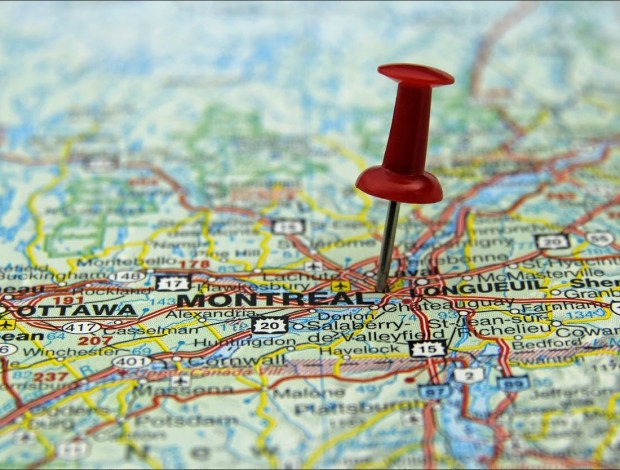Tips for non-resident house buyers

If you don’t live in the Province of Quebec, you need to know the rules of the game before buying a condo or a second home. From mortgage financing to tax obligations, experts explain what non-resident buyers need to know.
According to real estate broker Jean-Patrice Bourguet, whether diversifying their investments, seeking a more intimate foothold than a hotel for family visits, or housing their children who will study in Quebec for a few years, many non-residents are interested in buying a home or a condo in Canada, particularly with a favorable exchange rate. Bourguet’s advice to these buyers? Start your search on Centris.ca, a site offering easy access to thousands of properties for sale, as well as to brokers operating under multiple banners.
While an Internet search gets the ball rolling, buyers will eventually need to visit in order “to tour the sectors and visit the properties that interest them,” says Bourguet. “In general,” adds mortgage broker Julien Chaumont, “banks will ask that a foreign investor be present for the opening of a Canadian currency account (necessary for the transfer of a down payment), and for the signing of the mortgage and the deed of sale in front of a notary.”
Mortgage
What are non-resident requirements for obtaining a mortgage loan from a Canadian bank? First, a minimum down payment of 35% of the purchase price is required. Next, a letter from a banking institution in your country of origin attesting to the good standing of your dossier in relation to mortgage, personal or car loans, and to confirm cash availability for the down payment. “It must be personal, rather than the liquidity of a company or a corporation, which is why they will often ask for an account statement history of the last 30 days,” says Julien Chaumont, adding that some lending institutions will also ask the bank to confirm a client’s professional status, as well as their assets, liabilities and income. Since a non-resident doesn’t have a history in Quebec, these documents essentially replace a traditional credit bureau investigation. “In some cases, for the purchase of a condo only, it might be possible to avoid a disclosure of revenues with a down payment of 50%,” explains Chaumont.
Some banking institutions may also slightly raise the interest rate on mortgage loans granted to foreign investors. As for amortization, it will be for a maximum of 25 years. “It’s not possible for non-residents to extend the term to 30 years, as is the case for Canadians with a down payment of at least 20%,” notes Julien Chaumont.
Tax implications of rental income
If there is any rental income, it will be taxable. For non-residents, the Canada Revenue Agency requires a 25% deduction of rental income as soon as it is collected, which may reduce the amount of cash available to pay for expenses associated with the property. In February of the following year, owners complete a tax return for rental income which allows for expense deductions, as well as for the reimbursement of overpaid taxes. “The wait can be long, with the reimbursement sometimes only coming in November,” says Thomas Keyes, CPA, CA, who suggests this trick: hire a Canadian agent, accountant or property manager, for example, who can personally guarantee taxes owed to the Canada Revenue Agency. The Canadian agent will produce an estimate of net profits at the beginning of the calendar year, and it’s this amount - less than income – that will be used to calculate the 25% deduction. “It can be advantageous when rental income profit is not very high due to a large mortgage or significant maintenance costs,” notes Keyes. This can be particularly true since non-resident owners often offer lower rent to ensure a reliable and responsible tenant. Being far away, it is more difficult to deal with problematic situations, so non-resident owners often prefer to forego rental profits in lieu of betting on added value at the time of resale five or ten years later.”
Also read: All about new home taxes
In respect to rental income, non-resident owners deal only with the Canada Revenue Agency, which then submits portions due to provincial governments.
Tax impact on capital gains
When non-residents resell a property, they are taxed on the capital gain at the same rate as residents, but they are not entitled to the basic personal exemption.
At the time of sale, a notary will freeze all funds until certificates of discharge from both provincial and federal levels of government are obtained. “This system ensures that the Canada Revenue Agency and Revenu Québec receive taxes owed to them,” explains Thomas Keyes, who advises that sellers request certificates of discharge upon signing the promise to purchase. “You will then receive a letter from both levels of government indicating what you owe them. Taxes will be paid at the time of sale and certificates of discharge will be issued the next day. It’s faster because all of the audit work has already been done,” says the accountant.
Also read: 7 economic benefits of buying a brand-new home
In cases where non-residents buy an apartment for their children who are going to study in Quebec for a few years, Thomas Keyes suggests putting the property in the name of the children, who can obtain residency status and benefit at the time of resale from an exemption for a principal residence. As a result, the capital gain will not be taxed. “One disadvantage, however, is that the children must accept the profit. If the purchasing parents want to receive the capital gain on their investment, they must keep the property in their name and pay the taxes,” explains Keyes.
On the other hand, this trick is easier to apply when paying cash for the apartment. If mortgaged, the bank will require that the parents’ names be added to the property title, and a notarized letter will be necessary, says Keyes.

Stock images: Shutterstock
Related articles
Most popular articles